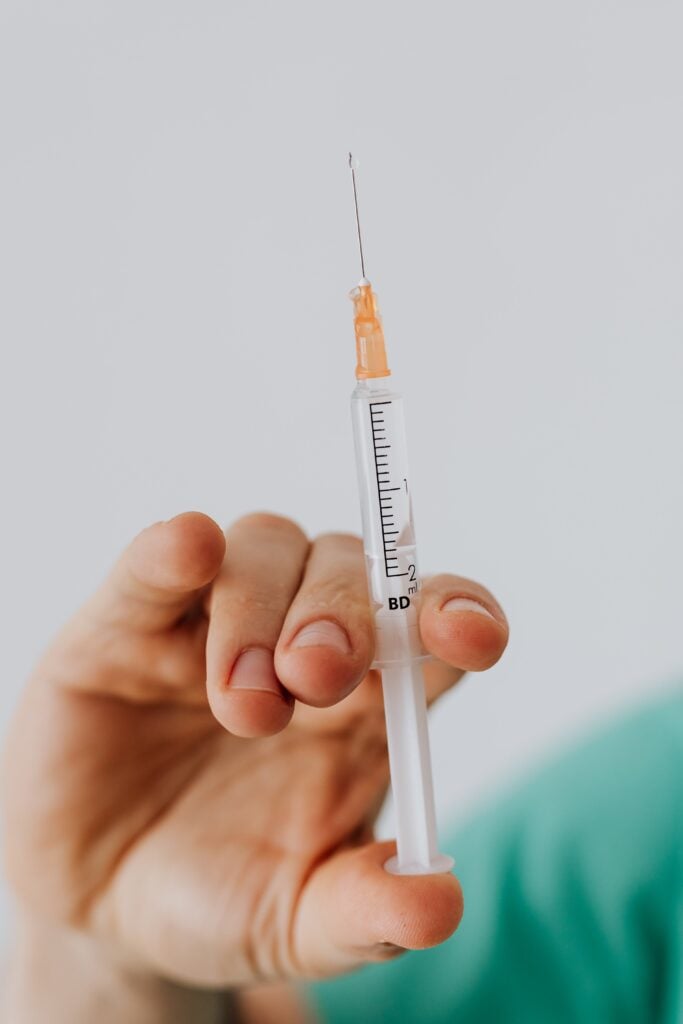Vaccination significantly reduces the chances of getting long-COVID and, in some cases, improves existing long-COVID symptoms
08 Feb 2024

The emergence of COVID-19 brought about a global health crisis of unprecedented proportions. As vaccination campaigns were rolled out, researchers and healthcare professionals began investigating the potential impact of vaccines on preventing not only acute COVID-19 but also long-term complications, commonly referred to as long-COVID. A systematic review, aptly titled “Impact of COVID-19 Vaccination on the Risk of Developing Long-COVID and on Existing Long-COVID Symptoms” sheds light on this critical aspect.
The review synthesizes data from numerous studies and clinical trials, providing insights into the profound benefits of COVID-19 vaccination. Findings suggest that vaccination significantly reduces the risk of developing long-COVID, offering hope to countless individuals worldwide. Moreover, the vaccine appears to ameliorate existing long-COVID symptoms in some cases, improving the quality of life for those grappling with lingering health issues. This systematic review underscores the importance of vaccination not only in curbing the acute impact of the virus but also in mitigating its long-lasting effects. It reinforces the global commitment to vaccination as a pivotal tool in our fight against the COVID-19 pandemic, offering a ray of optimism as we navigate these challenging times.
This article co-authored with experts on COVID-19 is a contribution to the evolving knowledge on the illness, particularly on the vaccines that are currently being used. This first systematic review evaluating evidence to date about the impact of vaccines on long COVID supports that vaccination before SARS-CoV-2 infection is able to reduce the risk of developing long-COVID. The impact of vaccination in people with long-COVID symptomatology is controversial, with data showing changes in symptoms and others did not. Current results support that COVID-19 vaccines can be used as a preventive strategy for decreasing the risk of long-COVID, but data about its effects on people with current long-COVID needs further research. Questions about the impact on hospitalized/non-hospitalized, males/females and the impact of vaccine boosters is clearly needed.
Authors:
Kin Israel Notarte (Department of Pathology, Johns Hopkins University School of Medicine), Jesus Alfonso Catahay (Department of Medicine, Saint Peter’s University Hospital), Jacqueline Veronica Velasco (Faculty of Medicine and Surgery, University of Santo Tomas), Adriel Pastrana (Faculty of Medicine and Surgery, University of Santo Tomas)
Abbygail Therese Ver (Faculty of Medicine and Surgery, University of Santo Tomas), Flos Carmeli Pangilinan (Faculty of Medicine and Surgery, University of Santo Tomas), Princess Juneire Peligro (Faculty of Medicine and Surgery, University of Santo Tomas), Michael Casimiro (Faculty of Medicine and Surgery, University of Santo Tomas), Jonathan Jaime Guerrero (Learning Unit 3, College of Medicine, University of the Philippines Manila),
Ma. Margarita Leticia Gellaco (Faculty of Medicine and Surgery, University of Santo Tomas), Giuseppe Lippi (Section of Clinical Biochemistry, University of Verona), Brandon Michael Henry (Clinical Laboratory, Division of Nephrology and Hypertension, Cincinnati Children’s Hospital Medical Centre) and César Fernández-de-las-Peñas (Department of Physical Therapy, Occupational Therapy, Physical Medicine and Rehabilitation, Universidad Rey Juan Carlos)
Read the full paper: https://www.thelancet.com/journals/eclinm/article/PIIS2589-5370(22)00354-6/fulltext
